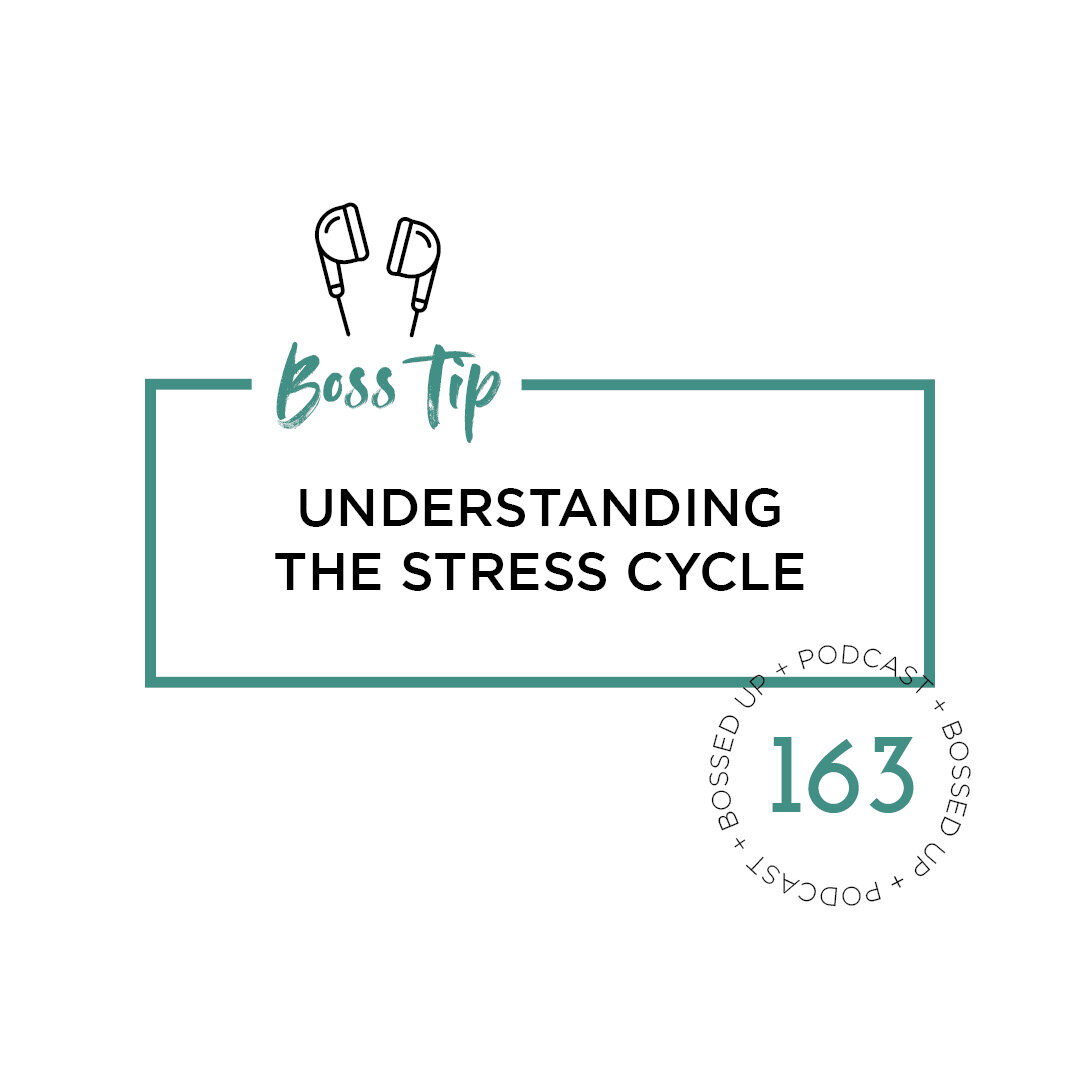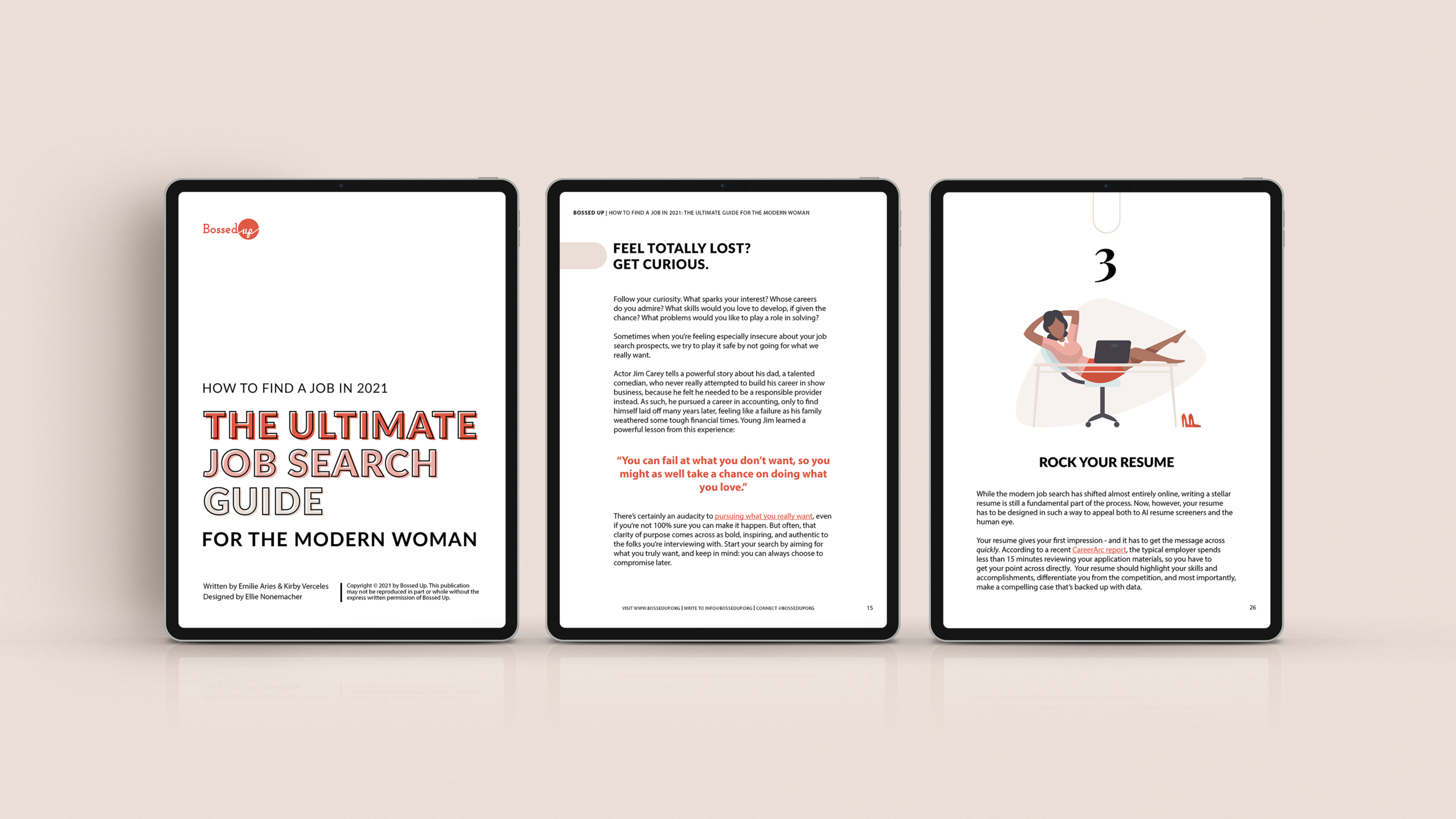What To Do If You've Been Laid Off Due to COVID19
Episode 213 | Author: Emilie AriesThis global pandemic is a very scary, real threat. So is the economic fallout that the COVID-19 crisis is causing.
The US Labor Department reported that 2,281,000 Americans filed for unemployment last week — a 70,000 jump from the week before. This unprecedented increase marked the highest level in initial claims since 2017, when claims spiked in the wake of Hurricanes Harvey and Irma.
If you're among the many Americans facing joblessness right now, here's what you need to know:
1. Take a deep breath
There is a ton of uncertainty right now. No one knows how long all this will last, nor exactly what kind of relief will help.
You will need to keep your wits about you to navigate the uncertain, choppy waters ahead. I know it's difficult, but you cannot act from a place of panic.
The science of stress shows us, in fact, that you need to complete the stress cycle before you can think and feel anything close to calm and centered again. What does that look like? Cry! Go ahead, give yourself permission to let it out. Scream, if you can find a place to do so that won't alarm your neighbors. The release is important. And if you can do so safely, run! Break a sweat. These actions signal to your brain that you acknowledge the stressful blow you've just been dealt, and that you're doing something to mitigate it.
What won't help your brain process the stress hormones that are flooding it right now? Sitting on the couch with a bottle of wine and tub of ice cream. I'm serious! Trying to numb away your pain does not work as well as completing the stress cycle, because those are just temporary fixes. The stress hormones are still going to be in your brain and body the next day when you wake up with a hangover and bellyache.
2. File for Unemployment Immediately
Whether you were laid off, furloughed, or fired (so long as you weren't fired "for cause"), you are eligible for unemployment benefits. And now with the passing of the CARES Act, contractors are eligible for unemployment benefits for the first time and the amount of unemployment benefit being offered has increased by an additional $600 per week.
While lots of support has come down from the federal level, keep in mind: each state's Department of Labor manages their own unemployment program.
If you live in one state and work in another, file for unemployment in the state where you had the job. Similarly, if you lost your job and then moved to another state, file in the state where you had the job.
While most states allow you to file online or over the phone, many states are not allowing for in-person filing right now due to health concerns. That can make this process especially difficult, since there is an overwhelming number of new filers, causing websites to crash and wait times over the phone to be astronomical.
Keep trying.
The sooner you file for unemployment, the sooner your benefit checks will arrive. Typically it takes 2-3 weeks for your first check to arrive, although Congress is currently considering a measure to try and expedite that process and increase the percentage of wage replacement you can expect.
3. Talk With Your (Former) Employer
While it may be difficult to empathize with your employer right now, it's important not to burn bridges. Odds are, they didn't want to lay you off, but were forced to make unprecedented, difficult decisions in the face of entirely unprecedented mandates, like stay at home orders and shelter in place proclamations.
Talk to your boss about their thinking. Ask if they've looked into state-specific COVID-19 unemployment insurance programs that are being put into place to provide grants and low-interest loans to businesses that have been hardest hit.
Last week, Congress passed the Families First Coronavirus Response Act, which you should also discuss with your employer, if it applies to them (the act applies to all businesses with under 500 employees and government entities). Among other things, the Act establishes paid sick leave and temporarily expands the existing federal Family and Medical Leave Act of 1993 (the “FMLA”).The Act provides tax credits for employers offering qualified paid sick leave and paid family leave wages (subject to certain caps and limitations) to offset the cost of providing the paid leave. The Treasury Department likely will issue additional regulations on the subject, but there's still a lot that's to be announced.
Employers must provide paid sick time to the extent that an employee is unable to work (or telework) due to a need for leave because:
The employee is subject to a federal, state or local quarantine or isolation order related to COVID-19.
The employee has been advised by a health care provider to self-quarantine due to COVID-19 concerns.
The employee is experiencing symptoms of COVID-19 and seeking medical diagnosis.
The employee is caring for an individual subject to a quarantine or isolation order, or who has been advised to self-quarantine.
The employee is caring for a child whose school or place of care has been closed, or the child care provider is unavailable due to COVID-19 precautions.
The employee is experiencing any other substantially similar condition specified by Health and Human Services (“HHS”) in consultation with the Department of Treasury and Department of Labor.
Discuss this act with your employer and stay tuned to the news from the Department of Labor and the US Treasury, as more information is coming out daily.
Finally, ask what your boss is thinking when it comes to the recovery process. Will they be looking to rehire you when the market picks back up? How confident are they in their ability to do so?
4. Take Stock of Your Finances
Once you've filed for unemployment, it's time to take stock of your emergency resources. Do you have any savings you can fall back on? Consolidate them and calculate how long you'll be able to get by on them based on your most bare-bones budget.
Call your creditors. Your landlord/landlady, your mortgage company, your water & electric utilities, credit card companies, or automobile lenders. While these conversations may be difficult to have, it's important to have them early on in the process to find out any options they may have for deferred, reduced, or postponed payments. If you have these bills set to autopay, turn them off.
Keep in mind, many states' public utility commissions have recently passed declarations prohibiting utility companies from shutting off your electricity or water due to a lack of payment right now, in light of the COVID-19 crisis. Some internet/cable companies are included in that proclamation as well, but it varies state-by-state.
If you're worried about facing food scarcity, apply for assistance through your state's Department of Human Services and reach out to local charitable organizations and faith communities. Call directly or reach out via their websites to inquire about available resources.
If you have lost access to health insurance for you and/or your children, apply right away for Medicaid, which you can learn more about here: www.usa.gov/medicaid.If this process causes you anxiety, which is very common, take a few minutes to listen to this interview I did with author Melanie Lockert on Mental Health & Money, as hearing about her personal experience and advice can help.
5. Start Your Job Search
You'll notice this is the last item on the list. Given the extreme circumstances we find ourselves in, it truly doesn't make sense to think about your job search until you take all the other steps above to prioritize your basic human needs.
But when you are ready, we're here to help:
Keep in mind: whatever investments you make in your job search now are likely tax-deductible later on. So save your records.














How to make your job search a priority now.